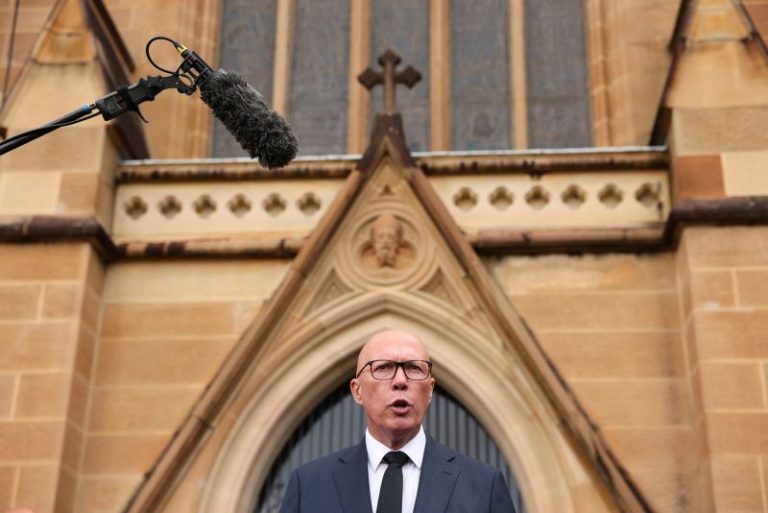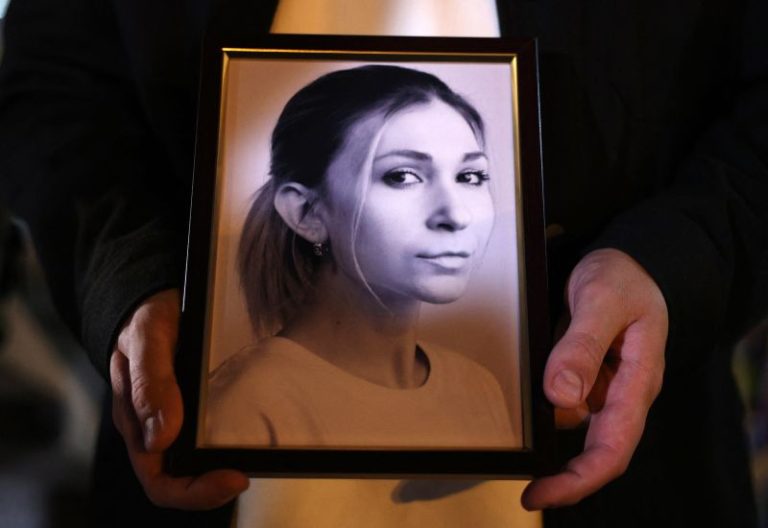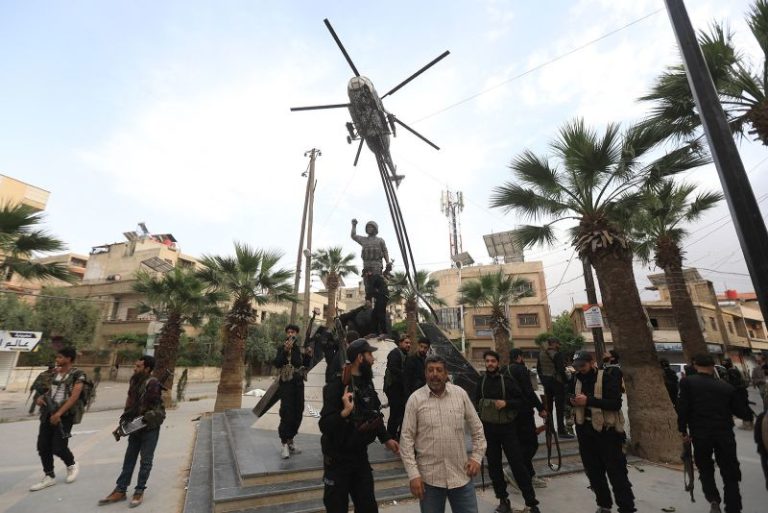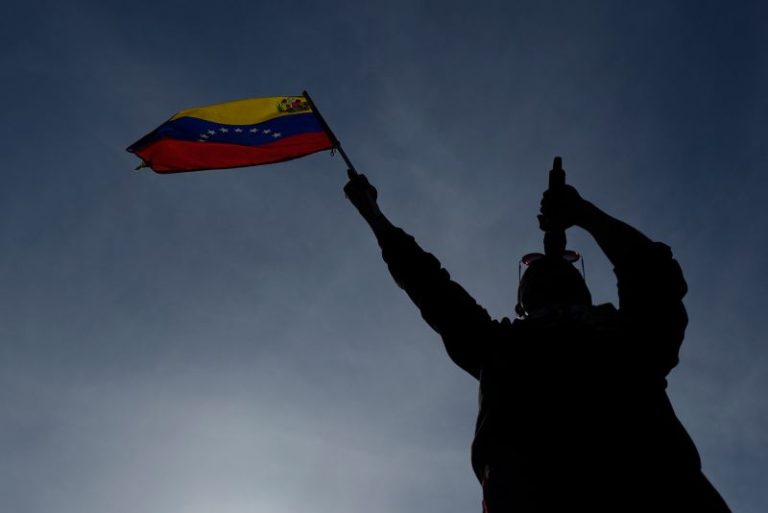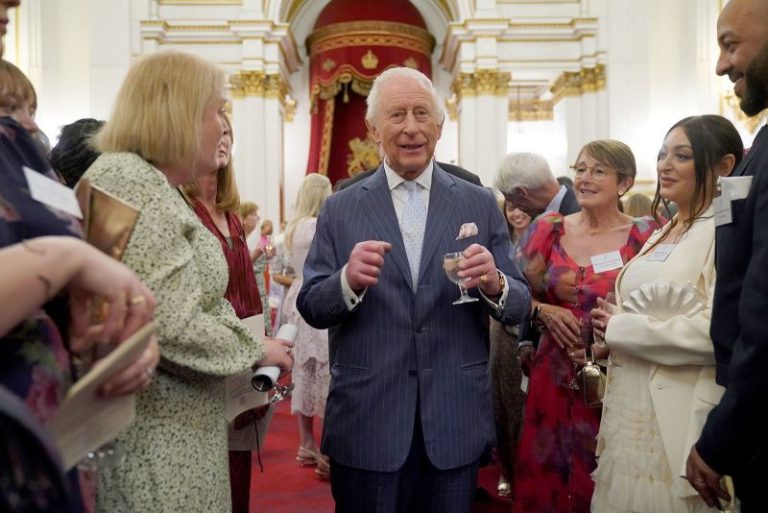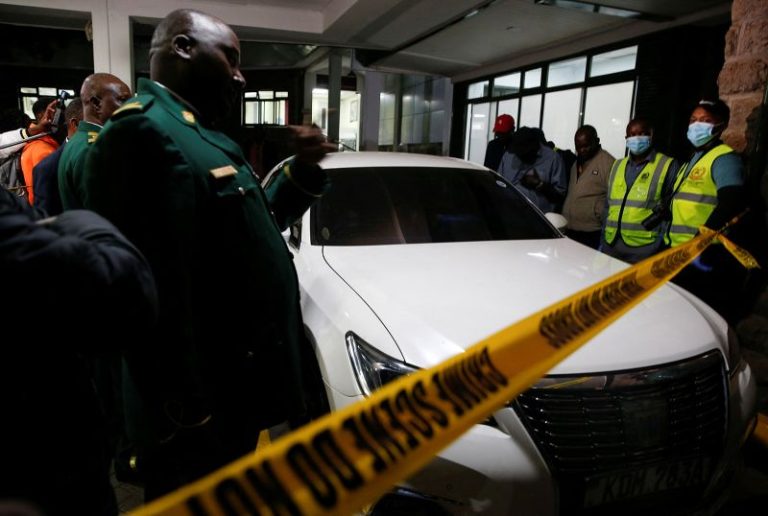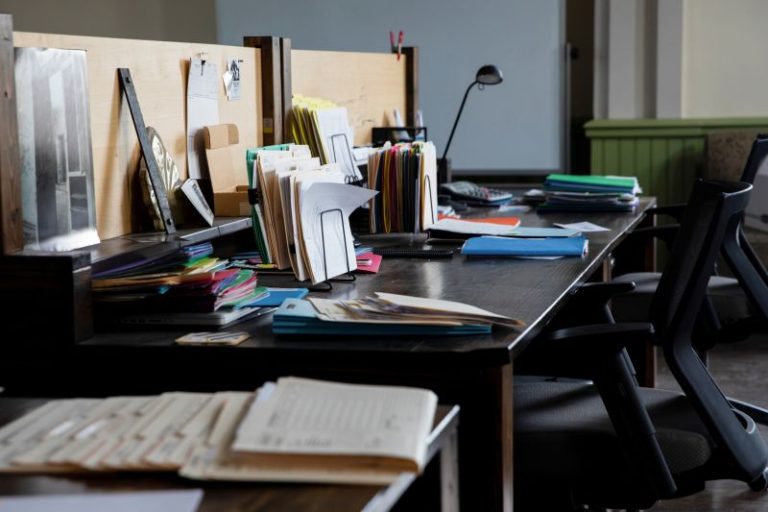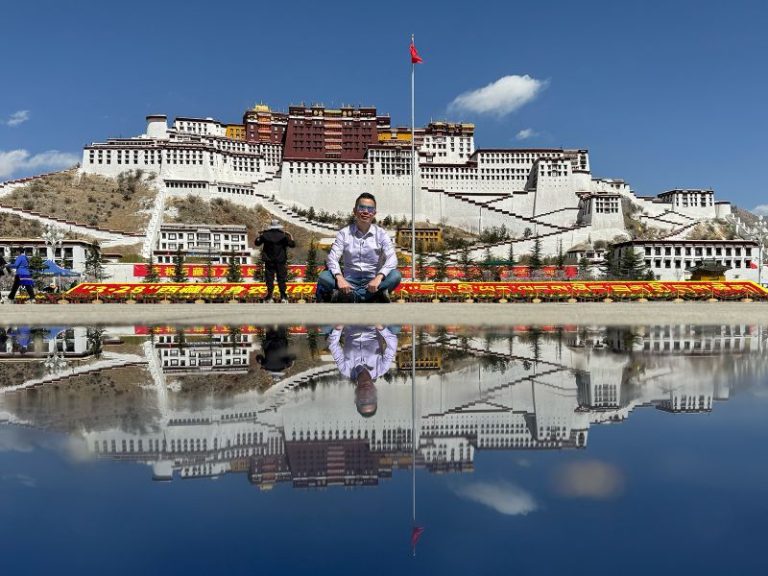A “no photograph upon landing” announcement punctured the serene silence of the cabin as I gazed at the snow-capped peaks outside our airplane window, a stark reminder that we were entering a land of profound beauty and immense political sensitivity.
Our Air China flight from Beijing carried not just my cameraman and me, but also about two dozen other foreign journalists, all accompanied by a team of Chinese officials. We were headed to Tibet, a place where access is as guarded as its ancient treasures.
We usually avoid government-organized media tours, wary of the predictable agendas and restrictions. Yet, for Tibet, there is no alternative.
The Tibetan Autonomous Region remains the only place in China where all foreigners – especially foreign journalists – are barred entry without prior authorization.
Our requests to report from the ground have mostly been met with polite, but firm denials – including in January, when a powerful earthquake struck the region, killing more than 120 people.
For centuries, Tibet was mostly independent from China – with the Tibetans possessing ethnic, linguistic and religious identities starkly different from those of the Han Chinese. On a few occasions in history, Tibet fell under the rule of emperors in Beijing, most recently during the Qing dynasty starting in the 18th Century. After the 1912 collapse of Qing, China’s last imperial dynasty, Tibet enjoyed de facto independence though it was never recognized by China or much of the international community.
The Communist forces, emerging victorious from a bloody Chinese civil war, marched into Tibet in 1950 and formally annexed it into the newly founded People’s Republic of China the following year. Beijing has maintained a tight grip on the Himalayan region since the 14th Dalai Lama, Tibet’s spiritual leader, fled to India in 1959 after a failed uprising against Chinese rule. In the decades since, the Communist Party has swiftly cracked down on any unrest and enforced policies that critics say are intended to weaken the Tibetan identity.
Landing in late March at Gonggar Airport, one of the world’s highest at nearly 12,000 feet, just outside the Tibetan capital Lhasa, the thin air was an immediate signal to slow down as breathing grew labored and a headache began to develop. Stepping into Tibet, long known as “the roof of the world,” was an immersion into a different rhythm of life, dictated by the altitude’s power.
It had been 16 years since my last visit, a journey cut short by altitude sickness. This time, armed with ibuprofen, I was determined to document the changes that had swept through Tibet – or rather, “Xizang,” the new official English name adopted by authorities and indicated in our schedule. The moniker – transliterated from the Chinese name for the region – is a linguistic battleground reflecting deeper geopolitical tensions between Beijing and critics of its Tibet policy.
En route from the gleaming airport terminal to our hotel in Lhasa, the nearly empty freeway and unoccupied high-rise apartments spoke to China’s massive investments in developing infrastructure in Tibet. The region is still the country’s poorest with the lowest life expectancy.
Imposing portraits of China’s top leader Xi Jinping, alongside another picture featuring him and his four predecessors, dotted the highway and adorned almost every public building, an omnipresent emphasis on loyalty to the ruling Communist Party.
This overt display echoed the main themes – ethnic harmony and common prosperity – reinforced on every foreign media trip to Tibet, ours included. The weeklong itinerary was a curated mix: a high-profile press conference (on human rights achievements in Tibet), economic success stories (at, among others, the “world’s highest cookware factory”), tourist hotspots (ranging from yak farms to peach blossom fields) and cultural spectacles (culminating in a lavishly produced outdoor musical retelling the saga of the most famous Chinese-Tibetan royal marriage in the 7th Century).
On the streets of Lhasa, banners and posters celebrated the 66th anniversary of the “liberation of a million Tibetans from feudal serfdom” – the official description of pre-Communist-takeover Tibet.
Perhaps due to the controlled access to Tibet and China’s extensive high-tech surveillance network, I didn’t notice visible heavy security – even around temples and other sensitive sites.
The region hasn’t seen any major unrest in more than a decade. The last flareup in the early 2010s involved a string of self-immolation incidents that critics called a desperate cry against the Chinese government’s ever-tightening grip on Tibetan society.
Since then, Tibet has seen an unprecedented surge in tourism, predominantly from mainland China with visitors flocking to the region for spiritual exploration. A record 64 million people visited Tibet in 2024, according to government records – a more than tenfold increase from the roughly 6 million visitors in 2010.
Although March wasn’t peak season for Tibet travel, domestic visitors crowded tourist attractions. Clad in traditional local costumes and posing on Lhasa’s bustling centuries-old Barkhor Street, Chinese tourists often seemed to outnumber Tibetan pilgrims, who prostrated themselves on the stone ground and walked clockwise around temples while spinning hand-held prayer wheels – under the curious gaze of selfie stick-wielding onlookers.
If not for the picture-perfect backdrop of golden roofs of Buddhist temples – surrounded by majestic mountains and glistening in abundant sunshine – Lhasa could sometimes look like just another small city in China, especially outside its historical center.
Alongside gift shops and supermarkets, Sichuan restaurants dotted almost every street corner – a testament to the popularity of the Chinese cuisine as much as the main origin of Han migration from the neighboring province into Tibet – long said to be a source of tension between the two ethnic groups over perceived economic inequality.
A smattering of foreign tourists had also reappeared following the post-pandemic re-opening of Tibet, including a group at our hotel, an InterContinental property. Western brands – from major hotels to fast-food chains – appear to operate in Tibet without notable protests or criticisms of the past.
The undisputed top tourist attraction in Lhasa remains the Potala Palace, the former winter residence of the Dalai Lamas, spiritual leaders of Tibetan Buddhism, until the current holder of that position was forced into exile.
Now living in Dharamsala, India, and revered globally as a Nobel peace laureate, the 14th Dalai Lama is labeled by the Chinese government as a “wolf in monk’s robes” and an “anti-China separatist” – despite his declaration that he seeks only genuine autonomy, not independence, for his homeland.
More than two million people visited the Potala last year, paying up to $27 to tour the sprawling structure. While guides offered details on the architecture and the palace’s storied history, the current Dalai Lama was conspicuously absent from the narrative, especially his recent pronouncement that his successor, or reincarnation, must be born “in the free world” – meaning outside China.
When questioned, monks and officials in Tibet parroted Beijing’s official party line: “The reincarnation of each Dalai Lama must be approved by the central government and the search must take place within China,” Gongga Zhaxi with the Potala Palace administration told me.
“That the reincarnation should be recognized by the central government has been settled for many years,” echoed La Ba, a senior monk at Jokhang Temple, the holiest in Tibetan Buddhism.
Their response – in line with Xi’s increasing emphasis on “Sinicizing religions” in the country – contrasted with a memorable and unexpected moment from my 2009 trip. At Jokhang Temple, a young monk told me that, as a faithful Tibetan Buddhist, he recognized and respected the Dalai Lama – before being whisked away by officials.
The Tibetan government-in-exile in India dismissed the stance on the Dalai Lama’s reincarnation proclaimed by the officially atheist Chinese government, stressing that “His Holiness is the only legitimate soul who can decide.”
The prospect of the process going smoothly seems to have all but vanished – after Beijing forced the disappearance in 1995 of a young boy recognized by the Dalai Lama as the new Panchen Lama, Tibet’s second-highest spiritual figure who traditionally plays a leading role in the search for the Dalai Lama’s reincarnation.
The boy, Gedhun Choekyi Nyima, who has never been seen since, is a college graduate who leads a normal life, according to a Chinese government spokesman in 2020. Despite denunciations by the Dalai Lama and his supporters, Beijing has installed its own Panchen Lama – triggering a three-decade-old dispute that continues to loom large, a sobering reminder of the stakes at play.
Our journey continued via Tibet’s only bullet train service, a marvel of engineering designed to withstand the harsh climate of the Tibetan Plateau. As the train sped through tunnels and over bridges at 10,000 feet above sea level, the landscape unfolded in breathtaking panoramas as we sat in carriages equipped with automated oxygen supply systems and special windows resistant to the area’s high UV levels.
Yet, this 435-kilometer rail link between Lhasa and the eastern Tibetan city of Nyingchi is more than just a mode of transportation – it is a symbol of China’s ambition to integrate this remote region with its distinct culture into the mainstream.
In Nyingchi, we visited a public boarding school – a hot topic as both the Dalai Lama and UN experts have voiced concerns over intensifying assimilation of Tibetans. About a million Tibetan children from rural areas have been reportedly sent to these government-run schools, where the language of instruction is allegedly almost exclusively Chinese, and living conditions are said to be cramped.
“All of our efforts have effectively safeguarded Tibetan children’s right to receive a high-quality education,” said Xu Zhitao, vice chairman of the Tibet Autonomous Region, when I asked about the controversy surrounding the schools.
At Bayi District Junior High, most of the 1,200 students were Tibetan – some we talked to said they took an equal number of lessons in their native tongue and Mandarin. A group of giggling Tibetan eighth-graders spoke proudly of their culture and traditions – but when asked about Tibetan Buddhism and the Dalai Lama, they became hesitant to answer and their voices trailed off. Young or old, people showed they knew the boundaries that could not be crossed.
With growing tensions between Beijing and Washington, China’s uneasy relations with its neighbor India – a key US partner – has made Tibet even more strategically important as the two Asian powers jostle for territory and influence in the far-flung area.
Controversial infrastructure projects and even bloody military clashes have marred their disputed border region in recent years.
But a more pressing concern for both Beijing and New Delhi is perhaps the inevitable passing of the 14th Dalai Lama, who turns 90 in July. If a scenario of “dueling Dalai Lamas” were to emerge as a result of China’s policy, it could shake the foundation of Tibetan religion and society – potentially unleashing fresh anger or even instability – in the high Himalayas.
This post appeared first on cnn.com



